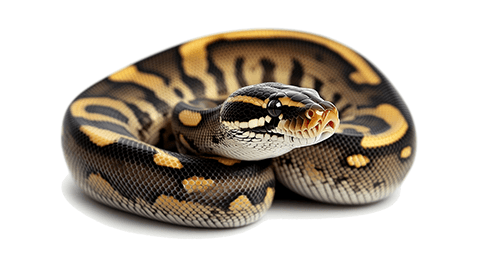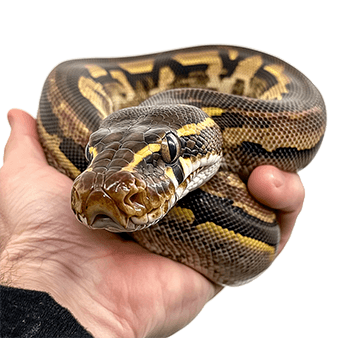Reptile Care: The Ultimate Guide to Happy and Healthy Reptiles
Reptiles are fascinating, unique pets that bring a world of wonder with their quirky behaviors, distinctive personalities, and intriguing characteristics. However, caring for reptiles is quite different from caring for traditional furry or feathered companions. From specialized environments to species-specific diets, reptiles have unique needs that must be met to ensure they thrive in captivity.
Whether you’re a new reptile owner or have been taking care of reptiles for years, this guide will help you navigate the essentials of reptile care, from creating the perfect habitat to providing a balanced diet and ensuring your pet’s health is monitored closely.

General Reptile Care Tips
Reptiles come in a wide range of species, each with its own specific care requirements. However, there are some general principles that apply to almost all reptiles. Here are the key areas of reptile care to focus on:
Creating the Right Habitat
One of the most critical aspects of reptile care is creating an environment that closely mimics your reptile’s natural habitat. Reptiles are ectothermic (cold-blooded) animals, meaning they rely on external heat sources to regulate their body temperature. Therefore, setting up the right temperature gradient within their enclosure is essential for their health and well-being.
Most reptiles require a warm basking spot, a cooler zone, and precise humidity levels to thrive. For example, desert species like bearded dragons need high temperatures and low humidity, while tropical species like chameleons require moderate temperatures and higher humidity. Additionally, UVB lighting is crucial for many reptiles, such as bearded dragons and leopard geckos, as it helps them synthesize vitamin D3, which is necessary for calcium absorption and bone health.
When setting up your reptile’s enclosure, use thermometers and hygrometers to monitor temperature and humidity levels closely. Regularly adjust these conditions to match the specific needs of your reptile species, ensuring they can thermoregulate properly and stay comfortable in their environment.
Diet and Nutrition
A reptile’s diet is just as important as its environment. Each species has different dietary needs, and it’s vital to feed them species-appropriate food. Reptiles can be herbivores, carnivores, or omnivores, so understanding what your specific reptile eats is crucial.
For example, bearded dragons are omnivores and need a mix of leafy greens, vegetables, and live insects like crickets or mealworms. Ball pythons, on the other hand, are carnivorous and eat pre-killed rodents such as mice or rats. Herbivores like iguanas require a diet rich in fresh vegetables and occasional fruits.
Supplementing your reptile’s diet with essential vitamins and minerals, especially calcium and vitamin D3, is critical for preventing deficiencies and diseases like metabolic bone disease (MBD). Insectivorous reptiles often need their prey gut-loaded (fed nutritious foods) and dusted with calcium powder to ensure they receive the necessary nutrients.
It’s also important to monitor feeding habits and adjust portion sizes as your reptile grows. Overfeeding or underfeeding can lead to health issues, so regular feeding schedules based on your reptile’s age and species are key.
Handling and Interaction
While reptiles can be fascinating to watch, not all of them enjoy being handled. Some reptiles, like ball pythons and bearded dragons, can tolerate and even enjoy gentle handling, while others, such as chameleons, are more sensitive to stress and should only be handled sparingly.
If you plan to handle your reptile, it’s important to be gradual and gentle. Start by getting them accustomed to your presence before attempting to pick them up. Always support their body properly, avoid sudden movements, and give them time to adjust. Never force interaction, as this can cause undue stress.
Understanding your reptile’s comfort level with handling will make the experience more enjoyable for both of you. Keep in mind that even reptiles who don’t enjoy frequent handling still benefit from regular interaction in other ways, such as being allowed to explore their environment or engage with enrichment activities.
Cleanliness and Hygiene
Maintaining a clean habitat is essential for your reptile’s health. Dirty enclosures can lead to bacterial growth, parasites, and respiratory issues, so regular cleaning is a must. This includes spot-cleaning daily to remove waste, replacing substrate regularly, and sanitizing food and water dishes.
Make sure to provide fresh, clean water at all times, as dehydration can be a serious issue for reptiles. Depending on the species, some reptiles may need to be misted regularly or provided with a humidity tray to maintain appropriate hydration levels.
Pay close attention to your reptile’s enclosure for any signs of mold, mites, or unpleasant odors, and address these issues promptly to ensure a safe, clean environment for your pet.
Monitoring Their Health
Reptiles are experts at hiding illness, so it’s essential to keep a close eye on their behavior, eating habits, and physical appearance. Any significant changes, such as a loss of appetite, lethargy, abnormal stools, or unusual shedding patterns, could indicate a health problem. Common reptile illnesses include respiratory infections, parasites, and metabolic bone disease.
Regular vet visits with a reptile-specialized veterinarian are recommended to ensure your pet’s health is monitored. A vet can check for any underlying health issues, provide guidance on diet and habitat maintenance, and offer treatments if needed. If you notice any signs of illness, seek veterinary advice promptly, as early intervention can make all the difference.

Explore Reptile Species-Specific Care
While these general care tips apply to most reptiles, each species has its own unique requirements. Providing species-specific care is crucial for meeting your reptile’s needs and ensuring they live a long, healthy life. Here’s a look at some popular reptile species and their care requirements:
- Bearded Dragon Care: Bearded dragons are beloved for their docile nature and curious behavior. They thrive in warm, dry environments and require a diet rich in both insects and leafy greens. UVB lighting and basking spots are critical for their health. Learn how to keep your bearded dragon happy and healthy.
- Leopard Gecko Care: Leopard geckos are low-maintenance reptiles, making them ideal for beginners. They need a warm, dry habitat with hide spots and a diet primarily consisting of live insects. These nocturnal reptiles are hardy and easy to care for but still require proper lighting and calcium supplementation. Discover everything you need to know about leopard geckos.
- Ball Python Care: Ball pythons are gentle, non-aggressive snakes popular among reptile enthusiasts. They require a warm, humid enclosure with plenty of hiding spots and a consistent diet of pre-killed rodents. Proper humidity control is essential to prevent shedding problems. Find out how to care for your ball python.
- Crested Gecko Care: Crested geckos are arboreal reptiles known for their sticky feet and expressive faces. They need a humid, vertical environment with plenty of climbing opportunities and a diet consisting of specially formulated gecko food, fruits, and insects. Check out our guide to caring for crested geckos.
- Chameleon Care: Chameleons are striking, colorful reptiles that require specialized care. They need high humidity, proper UVB lighting, and a stress-free environment. These reptiles are particularly sensitive to changes in their habitat and handling, so careful attention is needed to keep them healthy. Read up on how to care for chameleons.
Why Explore Species-Specific Care?
Each reptile species has its own distinct needs, from the type of enclosure to temperature and humidity requirements, to their specific diet. By learning about your reptile’s unique care needs, you can create the ideal living conditions and help them thrive. Whether you’re setting up a basking spot for your bearded dragon or fine-tuning humidity levels for your chameleon, species-specific knowledge is crucial for their health and well-being.
Conclusion—Caring for Your Reptile
Caring for reptiles can be incredibly rewarding when you’re equipped with the right information. From choosing the perfect enclosure to understanding their dietary needs and monitoring their health, every aspect of reptile care plays a role in ensuring your scaly friend lives a long, happy life. Explore our species-specific care guides and other resources to help you provide the best care possible for your reptile.
Whether you’re caring for a curious bearded dragon, a gentle ball python, or a lively crested gecko, we’ve got the tips and advice to support you in your reptile care journey. Dive into our guides and make sure your reptile is as healthy and happy as can be.

